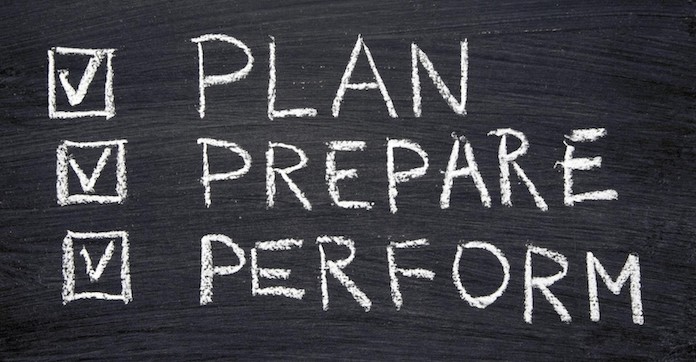Final exam season is upon us and with it… final papers! We’ve said it before, and we’ll say it again: the most significant aspect of every admissions decision is your coursework. How well are you doing in your classes? How rigorous is your course load? What is your GPA, and how does it compare to that of other students in your class? At the end of the day, no amount of extracurricular activities or internships can make up for middling grades in your classes.
With this in mind, we encourage all of our students to take final exam season seriously. After working hard throughout the semester, it’s important to finish strong. This is especially true because at many schools, final exams and final papers make up a significant portion of each student’s grade. Even if your school year got off to a rocky start, focusing on your classes now can often significantly boost your GPA.
OUR TOP TIPS FOR WRITING FINAL PAPERS
In conjunction with our Writing Center, we’ve rounded up a few tips to help you as you prepare to tackle your final papers. Although these tips are tailored to humanities courses like English and History, which often assign lengthy end-of-semester papers, you can apply most of our suggestions to any subject and by extension to other types of academic writing.
Tip #1: Read and understand the assignment.
This is a seemingly easy task, but it’s one that many students overlook. Before you tackle a final paper in any of your classes, make sure you know exactly what your teacher wants you to produce. Are you writing an argumentative paper? An expository one? Do you need to do research? What questions should you be addressing?
The world’s greatest analytical essay won’t get you a good grade if your teacher asked for a book report. By the same token, tons of research won’t help you if your teacher told you not to use outside sources.
To avoid producing the wrong kind of paper, make sure you read and then reread the assignment sheet. You might even try annotating the assignment, highlighting the intellectual aspects of the assignment (e.g., questions to prompt your thinking) and its formal elements (e.g., length, formatting, etc.). If you’re confused by any part of the assignment, ask your teacher about it before you begin writing.

Tip #2: Start preparing now!
Especially if your final papers’ due dates are several weeks away, it can be tempting to put them off for a later date. We’d advise against that. Finals season is always busy, so the more work you can get done immediately, the better off you’ll be.
This doesn’t mean that you have to begin writing each essay right away. Jotting down ideas or creating an outline, however, can give you a huge leg up when the time comes to put pen to paper. If your essay requires research, you’ll also want to be sure to set aside some time now to dive into the materials. Once finals season gets into full swing, you won’t have time to sift through lengthy books and in-depth databases, and you’ll find yourself using less reliable sources simply because they are more accessible. (Hello, Wikipedia!) Starting your research immediately will give you time to find sources that impress your teacher(s) and improve your own understanding of the material.
Tip #3: Make an outline.
When it comes to essay writing, it’s always a smart move to outline your work in advance. Making an outline helps you to figure out the subject of your essay and how you’ll be organizing your evidence to prove your case. It can also make the writing process itself less stressful, since you’ll have your paper mapped out in advance.
Outlines can take many different forms. Some are very detailed, laying out a thesis; multiple, carefully organized pieces of evidence; counterarguments; and concluding ideas. Others are more general, noting only a main idea and a few supporting points. The style of outline that you choose will depend upon your preferences and the type of essay you are writing. (A ten-page paper, for example, will probably benefit from a more detailed outline, while a short in-class essay will require only a very general one.) At the end of the day, though, the act of outlining itself will always make your writing projects clearer and the writing process easier.
Tip #4: When in doubt, run your ideas by your teacher.
One of the most basic ideas in writing is that you should write for your audience. In other words, you want to tailor your writing to suit the needs and interests of the people who will be reading it. When it comes to coursework, you have an audience of one: your teacher. For that reason, it makes sense to frame your essay to suit your teacher’s goals.
To make sure you’re doing that, try talking to your teacher about your ideas before you begin writing. Ask your teacher if you can set up a meeting or stay a few minutes after class to discuss your essay ideas with him or her. Would he or she be willing to review an outline or a preliminary draft of your essay? Does your teacher have any suggestions for you going forward? The more information you can get about what your teacher wants, the better prepared you’ll be to write the kind of essay that he or she enjoys reading.
PREPARATION IS KEY
By following these tips, you’ll ensure that you’re better prepared to tackle the upcoming finals season. If you need any additional help, feel free to reach out to our tutors for assistance!
- Application Boot Camp®: Celebrating 20 Years of Success - April 25, 2024
- Get to Know College Admissions Expert, Bryan Tomlinson - April 24, 2024
- Breaking News: Cornell Reinstates Standardized Testing - April 23, 2024


